SOUTH PORTLAND — An emergency department nurse and a former Army National Guard machine gunner for convoy escorts in Iraq, Nora Hoesing has never shied away from either danger or a fight.
That’s why she volunteered for a 14-day deployment at a veterans hospital in the Bronx, New York, the epicenter of America’s COVID-19 crisis. Hoesing said she knew the real fight against the coronavirus pandemic wasn’t happening in Maine.
“If this is the national pandemic of my lifetime for health care and I’m just sitting idly by on the sidelines, I don’t do well with inaction,” said Hoesing, 34, who lives in Rome, in Kennebec County. “I’d rather be participating and helping than sitting around and twiddling my thumbs.”
On Sunday morning, Hoesing and three fellow employees of the Department of Veterans Affairs’ Maine Healthcare System boarded a Department of Defense 737-700 jet from the Maine Aviation Corp. terminal at Portland International Jetport bound for New York. At 9 a.m. Monday, they will report to the James J. Peters VA Medical Center in the Bronx for the first of 14 straight 12-hour shifts.
The deployments are part of the VA’s DEMPS program, which stands for Disaster Emergency Medical Personnel System. It is designed to tap into human resources in areas of lesser need to support high-need hospitals in crisis situations.
Also on the flight were nurse practitioner Bridgett Fisher of China, medical support assistant Christina Willits of Cape Elizabeth, and housekeeping aide Matt Hamel of Chelsea. Dr. Paul Alessi, a primary care physician, drove himself to New York, having left Friday.
Including Sunday’s departures, 31 employees of the VA Maine Healthcare System have voluntarily deployed for two-week stints during the pandemic, said Tracye Davis, the medical center director for the system. Of those, 19 have gone to New York City, 11 to Bedford, Massachusetts, and one to Boston. Six have returned to Maine after finishing their deployment. Seven others signed up for a second 14-day shift.
Fisher, who served four years in the Air Force, said she volunteered because “obviously they need help” in New York, especially compared to Maine’s relatively low incidence of cases and death rates.
On Sunday, Maine crested the 1,000 mark in confirmed cases of the novel coronavirus. Fifty people have died from the disease in Maine, including one person at the Togus VA Medical Center in Augusta, where Hoesing, Fisher, Hamel and Alessi work. Willits works at the Portland Community Based Outpatient Clinic.
New York City has seen over 155,000 confirmed cases and 11,800 deaths. On Sunday, New York Gov. Andrew Cuomo reported a single-day death total of 367, the lowest for his state since March 31.
Fisher said she’s unsure what the situation at the Bronx VA hospital will be like.
“I’ve gotten conflicting data from people who have come and gone back. Some say it’s horrible, there’s nothing down there. Others (say) it’s not so bad. We have enough supplies,” Fisher said, adding that she has been well supplied with personal protective equipment and extra scrubs and masks by Maine’s VA system.

A flight attendant checks the temperature of Matt Hamel of Chelsea, a housekeeper at the Togus VA Medical Center in Augusta, before he and three other VA personnel from Maine boarded a plane bound for New York City. Ben McCanna/Staff Photographer
Hamel is another military veteran. In his eight years of active service with the U.S. Army, he did one tour in Iraq and two in Afghanistan, achieving the rank of sergeant. He works in Environmental Management Services at Togus, where he cleans. And in the Bronx, he expects to be cleaning and sanitizing in the COVID-19 area.
“For me, being a veteran, it’s just really the call of duty,” Hamel said. “It’s just another deployment for me. There’s just something inside, a driving force, that says, ‘Go help.'”
Willits is not a veteran herself but said she’s worked at the VA for the past 13 years in large part because she comes from a military family. Her father served three tours in Vietnam with the Marine Corps. She, too, felt the tug of duty.
“I feel deep in my heart when there’s a need, you should help,” Willits said. “They’re overrun with patients and I’ve heard a lot of the staff are also sick, so they’ve asked for help. So here in Maine, we’ve kind of stepped up and said we’re happy to help.”
During the pandemic, nurses and doctors have been proclaimed the new American heroes for their ability to function in dangerous conditions that are both physically and emotionally exhausting.
“I think a hero is someone who shows up and does a hard job that other people may not be willing to do,” Hoesing said. “So if you want to use that term for health care workers, you have to be willing to expand it to everybody else who’s still stepping up to the plate and keeping America moving.
“I think the ones who keep getting overlooked the most are our housekeepers and everyone who cleans up the messes behind us,” Hoesing continued. “I’m fairly well compensated for my role and the risk I take and there’s a lot of people who aren’t as well recognized or compensated for the risks they’re taking and bringing home to their families.”
The four VA Maine employees strode across the tarmac toward the jet, which had the words “United States of America” written across its body and an American flag affixed to the tail. Before boarding, they had their temperatures checked. They leaned in close to hear words from the aircraft’s flight personnel and then strode up the boarding ramp and disappeared inside.
On the ground, only a handful of people were present. There were no handmade signs saluting their service, or teary goodbyes from loved ones. Rather it was a simple, straightforward sense of purpose that punctuated the morning.
Ryan Lilly, the network director for VA New England, was on hand to see the party off. Lilly was acutely aware that the jet’s passengers were heading to a difficult assignment.
“It takes a spirit of tremendous service, tremendous self-sacrifice and a willingness to serve your fellow man,” Lilly said. “These individuals and the others who have gone are a real inspiration to all of us.”
Send questions/comments to the editors.


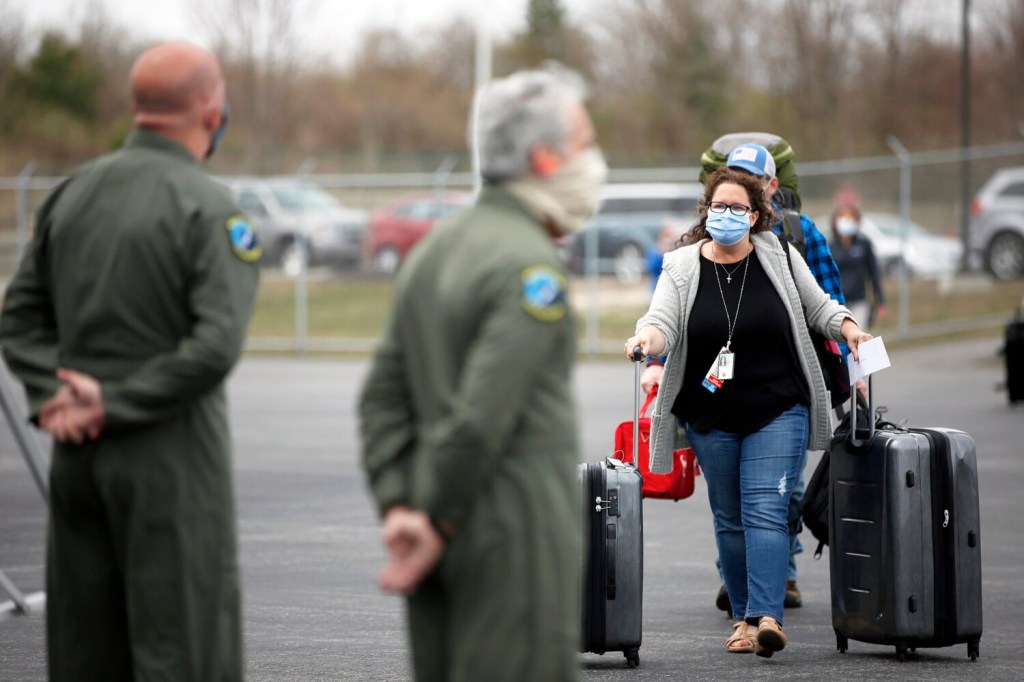
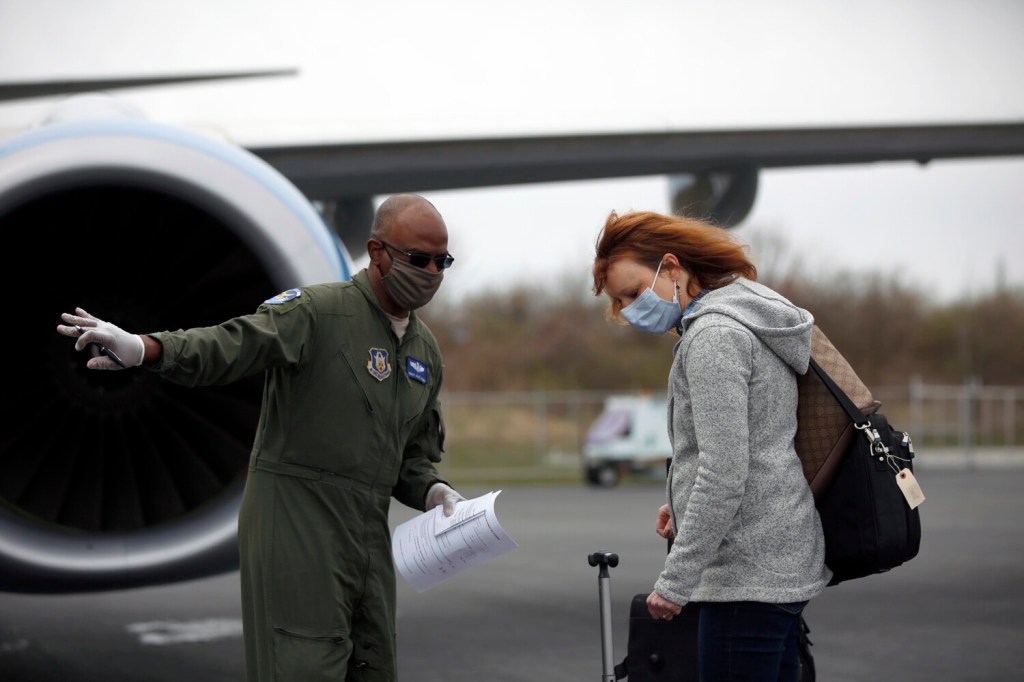
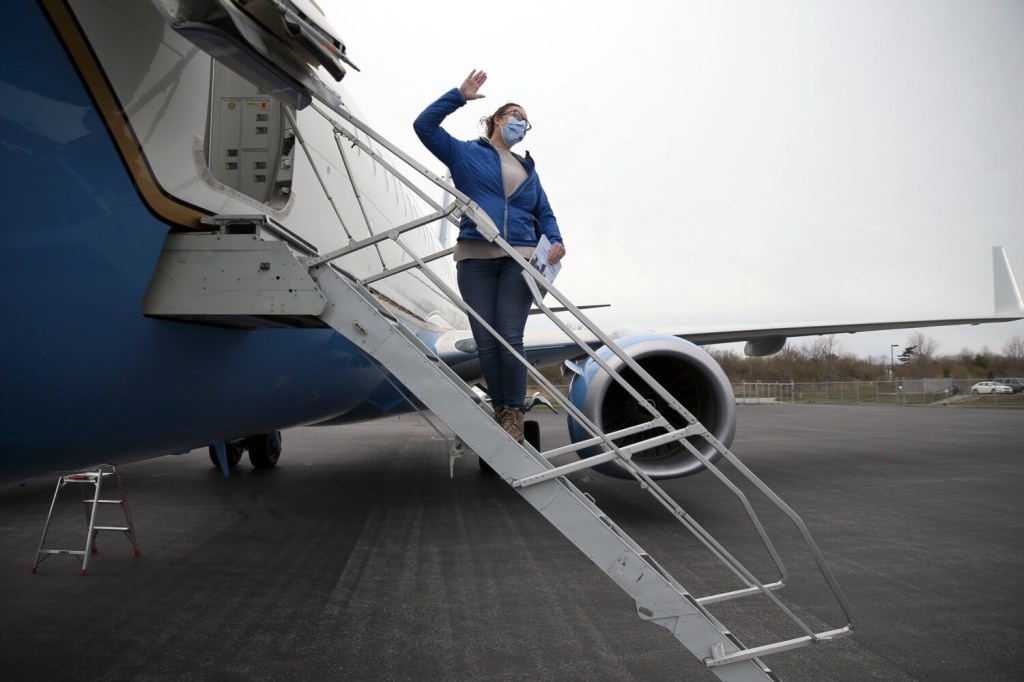
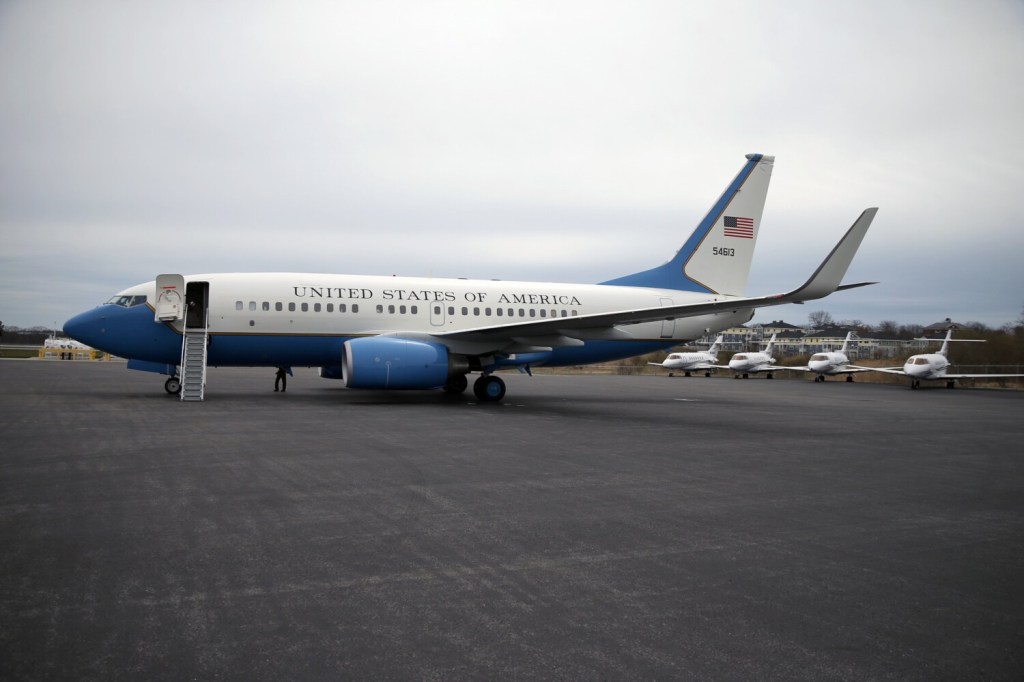
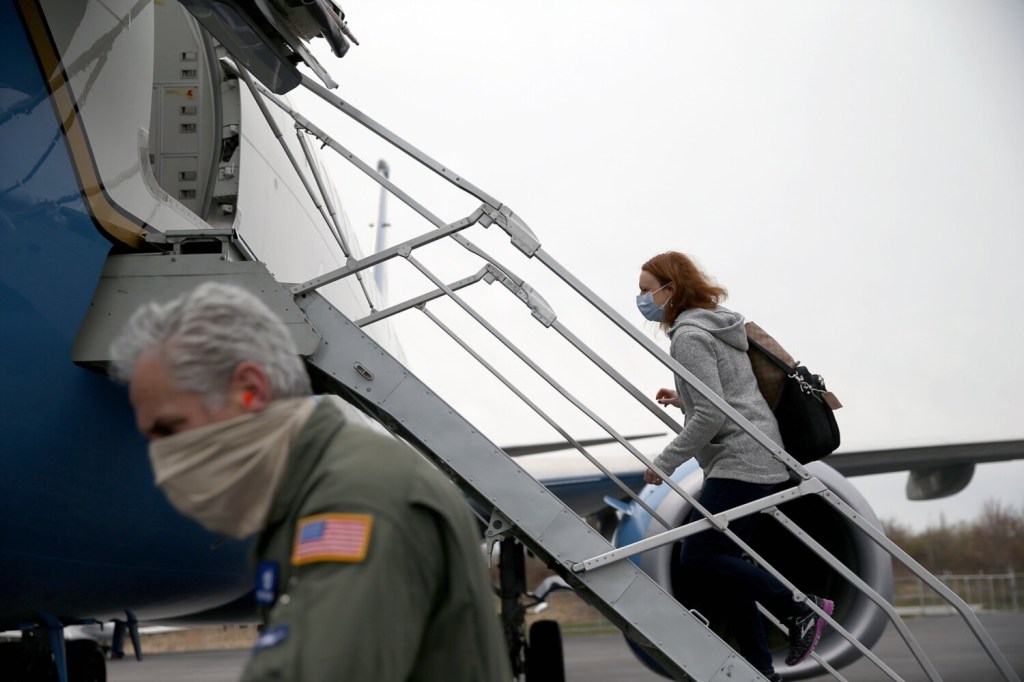
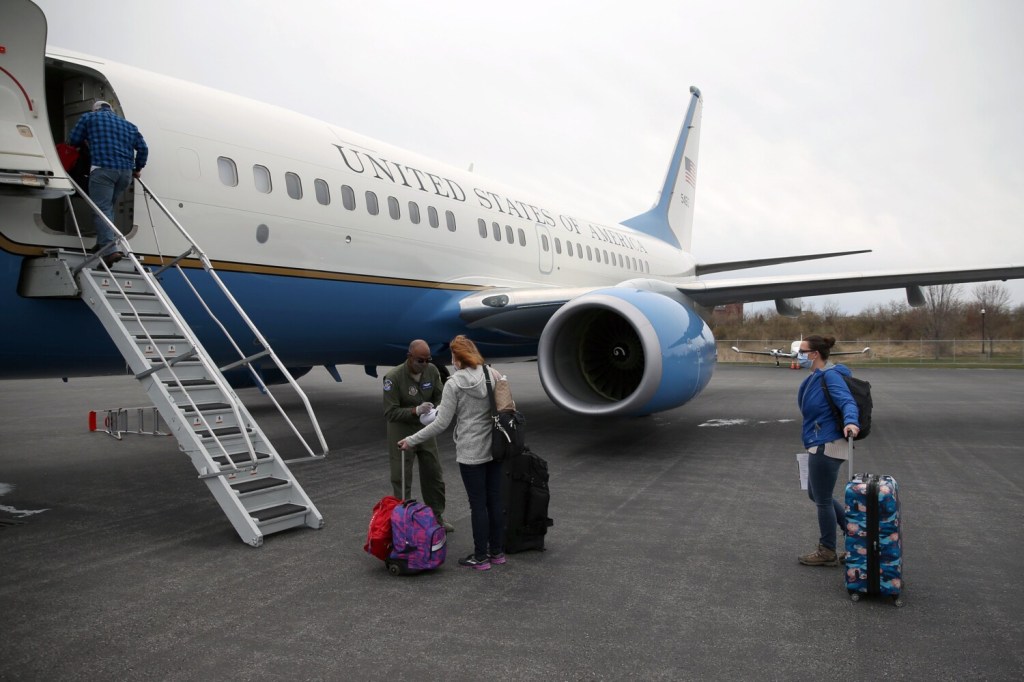

Comments are no longer available on this story